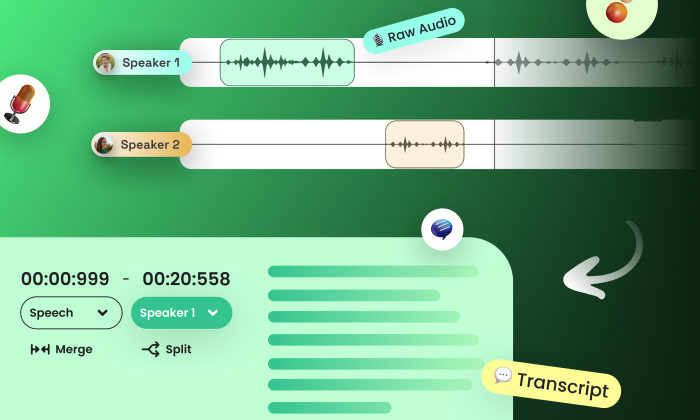What should I check before buying a commercial TTS dataset?
TTS
Commercial Use
Speech AI
When considering the purchase of a commercial Text-to-Speech (TTS) dataset, it's crucial to evaluate several factors to ensure the dataset aligns with your needs and supports effective TTS model training. Here’s a guide to help you navigate this important decision:
Understanding TTS Datasets
TTS datasets are collections of audio recordings paired with text transcriptions, essential for training TTS models. They can be scripted, featuring pre-written prompts, or unscripted, capturing natural speech. Choosing the right type depends on your application, whether it's for commercial, research, or voice AI purposes.
Essential Factors to Consider When Purchasing a TTS Dataset
Quality of Audio Recordings
The quality of audio recordings is critical for the success of TTS models:
- Sampling Rate and Bit Depth: High-quality datasets typically use a sampling rate of 48kHz and a bit depth of 24-bit, providing the clarity essential for accurate voice synthesis.
- Recording Environment: Ensure that recordings are made in acoustically treated studios to eliminate background noise and reverberation. Poor audio quality can degrade model performance.
- Signal Integrity: Choose datasets without clipping, distortion, or unwanted artifacts to facilitate better learning outcomes.
Diversity and Representativeness
A diverse dataset enhances the model's ability to generalize:
- Speaker Diversity: Look for datasets with varied speakers across genders, ages, accents, and dialects. This diversity supports the model's adaptability to different speech patterns.
- Emotional Content: Depending on your application's needs, datasets with emotional speech can add nuance and realism to synthesized voices.
Metadata and Annotation Quality
Robust metadata enhances training efficiency:
- Comprehensive Metadata: Ensure the dataset includes detailed metadata like speaker ID, gender, accent, and recording conditions. This information aids in training models with specific characteristics.
- Phoneme Alignment: Some datasets offer phoneme-level or word-level alignments, improving the precision of TTS models. Check the availability of this feature.
Compliance and Licensing
Legal and ethical compliance is vital:
- Contributor Consent: Verify that contributions are gathered with proper consent, especially when involving sensitive groups like children, to avoid legal issues in commercial use.
- Regulatory Compliance: Ensure the dataset adheres to data protection regulations like GDPR, which is crucial for applications handling personal data.
Customization Options
Flexibility in the dataset can enhance its applicability:
- Speaker Selection: Look for datasets that allow customization based on speaker traits such as accent or tone.
- Script Customization: If necessary, choose providers that offer custom script authoring, enhancing dataset relevance for niche applications.
Frequent Pitfalls in TTS Dataset Selection
Avoid these common missteps when selecting a TTS dataset:
- Overemphasis on Size: Larger datasets aren't always better. Prioritize quality over quantity for more effective model training.
- Ignoring Use Case Specificity: Ensure the dataset matches your specific application needs, whether for customer service bots, audiobooks, or assistive technologies.
- Neglecting Post-Processing Needs: Consider whether the dataset requires extensive post-processing, such as noise reduction or alignment adjustments, and whether you have the resources to manage it.
By carefully evaluating these factors, you can select a TTS dataset that meets your needs and supports the success of your voice synthesis projects. At FutureBeeAI, we specialize in providing high-quality, customizable TTS datasets that adhere to industry standards, ensuring optimal performance for your AI applications.
Smart FAQs
Q. What are scripted vs. unscripted TTS datasets?
A. Scripted datasets consist of pre-written content, ideal for controlled scenarios, while unscripted datasets capture natural speech, suitable for applications requiring conversational tones.
Q. How important is speaker diversity in TTS datasets?
A. Speaker diversity ensures that the TTS model can generalize across various demographics, enhancing its usability in real-world applications where user interaction varies widely in accent, age, and gender.
What Else Do People Ask?
Related AI Articles
Browse Matching Datasets
Acquiring high-quality AI datasets has never been easier!!!
Get in touch with our AI data expert now!








